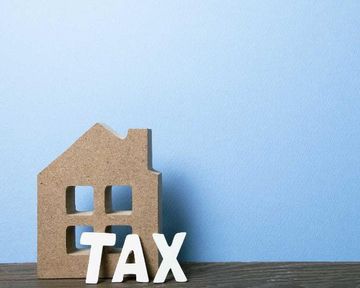Fixtures and Fittings: What goes and what stays
An often contentious issue, the definition of what is regarded as a fixture in the home has caused many a dispute between buyers and sellers during the property sales process.
To avoid disagreements it is imperative that the sales agreement between the two parties is clear regarding what stays in the home and what will be removed by the seller when they vacate.
It is not out of the ordinary for a homeowner to install an item that they intend to take with them if they sell the property. Even if the item would traditionally be regarded as a fixture, the seller is within their right to take the item, as long as the buyer is aware of the fact and it has been agreed upon in the sales agreement. It is vital that the sales agreement is as detailed as possible and addresses all aspects related to the sale – nothing should be left to interpretation.
In preparation for selling their home, sellers should compile a list itemising exactly what is to be sold with the house and what will be removed. This list should be incorporated into the mandate to sell so that the agent can point out to potential buyers any items that will be removed by the seller at a later stage. An alternative is for sellers to remove the items from the home before it is listed, to avoid any confusion.
There are three aspects to consider when defining whether a fixture or fitting is of permanent nature:
- The intended purpose or nature of the item when it was attached. Was the item attached to the land or a structure erected on the land and was the intention to serve the land on a permanent nature?
- The manner in which the item was attached plays a part. Is the item attached to the degree that removing it would cause damage to the structure or land that it is attached to?
- The owner’s intention when attaching the item should be taken into account. If the intention of the owner was to permanently attach the item, then that should be given consideration.
If an item has been bolted down, cemented to the ground, sown, or planted and has taken root it is generally regarded as permanent. An ambiguous area that often causes disputes is around structures such as sheds, pergolas, or other similar structures. Issues also arise around items that are not fixed but are used in conjunction with a fixture such as pool cleaners, garage door remotes, and batteries for solar power systems.
A basic clause regarding the fixtures and fittings should be included in the agreement of sale to avoid disputes down the line. The clause should be similar to the following:
"The property is sold inclusive of all existing fixtures and fittings of a permanent nature, which the seller warrants are his/her exclusive property, fully paid for and in working condition, including but not limited to: the existing garden, trees, shrubs, plants, curtain rails, rods, pelmets, fitted carpets, the light fittings, stove and/or oven, hanging mirrors, towel racks, shelves, as well as special tap fittings, removable kitchen units, tennis court net, fireplace grate/blower, fitted kitchen storage units, awnings, post box, burglar alarm system, doorbell/knocker, the television aerial and accessories (if applicable), pool filter, pump and all cleaning equipment including automatic pool cleaner (whether fixed or movable, if applicable), swimming pool equipment, inner and outer door keys."
Ideally, the clause needs to be as specific as possible to the transaction to ensure that nothing can be misconstrued. While it may seem like a tedious exercise, including the relevant details will assist in avoiding conflict. There could potentially be a verbal agreement between the two parties, if the agreement has not been reduced to writing it is very hard to prove anything at a later stage should the need arise.
It is vital that during the sales process there is an open channel of communication and seller's intentions are made clear to buyers from the start. Communicating and being upfront will ensure that conflict is avoided by both parties.
Need an attorney? Find one here

